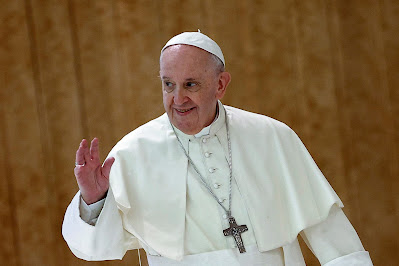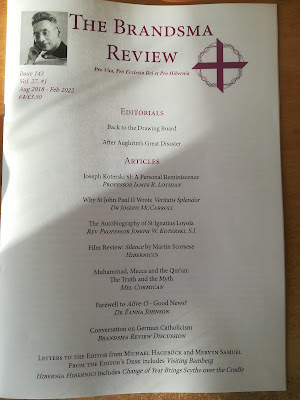I don't expect I'm going to be posting again until after Christmas, so I wanted to wish a very happy Christmas to all my readers.
Thank you for reading, for all the comments, for all the prayers, and for all the kindness in general.
And now over to good old Gilbert...
The truth is that there is a quite peculiar and individual character about the hold of this story on human nature; it is not in its psychological substance at all like a mere legend or the life of a great man. It does not exactly in the ordinary sense turn our minds to greatness; to those extensions and exaggerations of humanity which are turned into gods and heroes, even by the healthiest sort of hero worship. It does not exactly work outwards, adventurously to the wonders to be found at the ends of the earth. It is rather something that surprises us from behind, from the hidden and personal part of our being; like that which can sometimes take us off our guard in the pathos of small objects or the blind pieties of the poor. It is rather as if a man had found an inner room in the very heart of his own house, which he had never suspected, and seen a light from within. It is if he found something at the back of his own heart that betrayed him into good. It is not made of what the world would call strong materials; or rather it is made of materials whose strength is in that winged levity with which they brush and pass. It is all that is in us but a brief tenderness that there made eternal; all that means no more than a momentary softening that is in some strange fashion become strengthening and a repose; it is the broken speech and the lost word that are made positive and suspended unbroken; as the strange kings fade into a far country and the mountains resound no more with the feet of the shepherds; and only the night and the cavern lie in fold upon fold over something more human than humanity.








